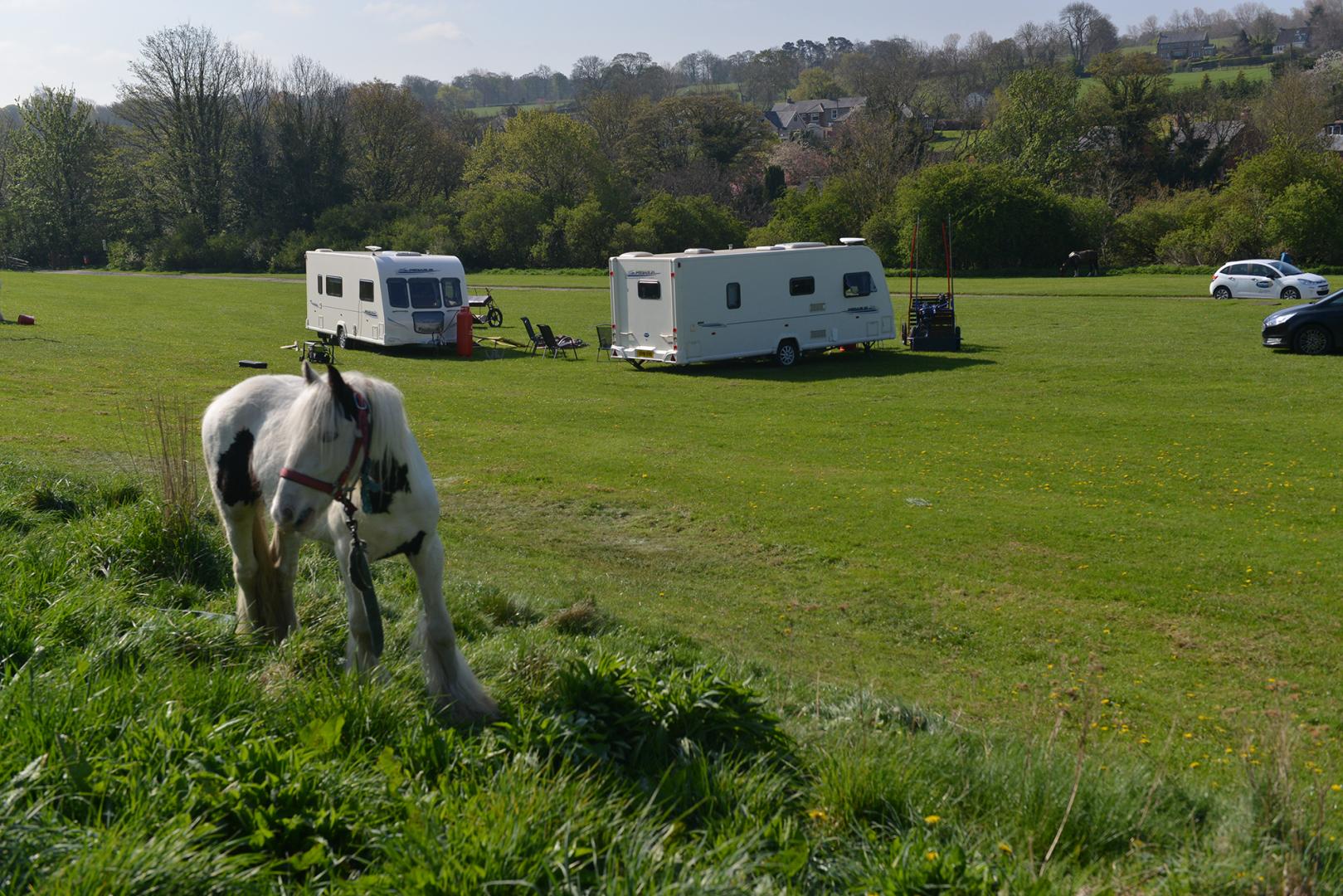AUTHORITIES have been praised for swiftly moving on an illegal traveller encampment on the Demesnes, in Barnard Castle.
Neighbours feared a repeat of last year when the entry of one caravan led to a full-scale invasion of the beauty spot.
It was only resolved more than a week later when an enforcement notice was issued.
However, this time, a team sent in by Durham County Council, along with police, convinced the travellers to move to a dedicated traveller site at Shaw Bank.
The travellers were gone by 5pm on Friday, a little over 24 hours after they arrived.
A resident who saw a man cut through the lock on the Demesnes gate said: “I saw him hacking it off. He knows I saw him because I was standing at the door watching.”
Another neighbour added: “The point is they did take a circular saw to that – it was a criminal offence.”
The resident added: “This time I was more impressed [than last year]. They moved on a lot quicker. A policeman and a young woman came along quickly and they were there all the time they were packing up. They followed them as they left.”
Early on Friday morning a police spokesperson said: “This encampment is illegal and not included as part of the areas set aside for travellers as stop over locations
“The police together with representatives from Durham County Council are working to resolve the situation as soon as is legally possible.”
Durham County Council’s public protection manager Owen Cleugh added: “Following visits to the site to talk to those camped there, and discussions with Durham Constabulary and local councillors, agreement was reached on a mutually acceptable location they could move to.
Barnard Town Council’s clerk, Martin Clark credited residents of Mill Cottages for being co-operative during the incident.
Elsewhere, Wetheriggs Animal Rescue Centre was called out on Thursday to rescue a Shetland pony and its foal, which had been abandoned in a field without water.
Shelter operator Terry Bowes said he believed the animals may have belonged to travellers.
He added: They have no passports, so we will have to passport them. And they have no micro-chips.”
ADVERTISEMENT
Travellers moved on after illegally setting up camp on beauty spot
ADVERTISEMENT
ADVERTISEMENT
ADVERTISEMENT






